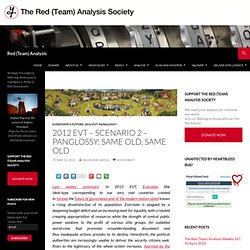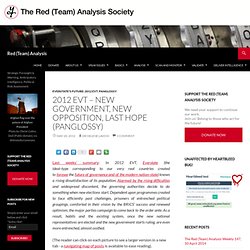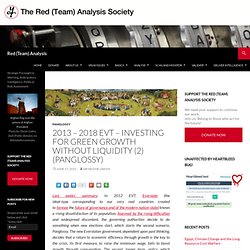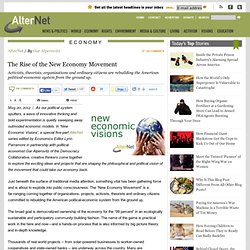

Diplomats back common EU ‘project bonds’ plan. Nationalists celebrate victory in Serbian poll. Jeremy Rifkin on global issues and the future of our planet. Thoughts on Richard Heinberg’s book "The End of Growth" Credit ©2012 Isaac Hernández/IsaacHernandez.com How many books can you say the following about: “If the thesis is true, every assumption we have taken for granted regarding what the future holds is wrong.”

Or, more to the point: “If the thesis is true, my generation is, royally, screwed.” I can’t think of many, but I did just read one, Richard Heinberg’s “The End of Growth.” Heinberg is no fool. Even though Heinberg remains positive and refrains from painting a bleak picture in detail, it’s easy to imagine degrowth unfolding violently. But, come to think of it, after suggesting those topics, I can now think of two other authors whose works contained theses that, if correct, would have radically disproven our preconceptions of the future: Thomas Malthus and Paul Ehrlich. Or, it’s quite possible that I was simply not around when those works were published, and that I hold predispositions for gloom that would have had me celebrating those books as well.
I was bitter. 2012 EVT – Scenario 2 – Panglossy: Same Old, Same Old. Last weeks’ summary: In 2012 EVT, Everstate (the ideal-type corresponding to our very real countries created to foresee the future of governance and of the modern nation-state) knows a rising dissatisfaction of its population.

Everstate is plagued by a deepening budget deficit and an increasing need for liquidity, with a related creeping appropriation of resources while the strength of central public power weakens to the profit of various elite groups. An outdated world-view that promotes misunderstanding, disconnect and thus inadequate actions presides to its destiny. 2012 EVT – New Government, New Opposition, Last Hope (Panglossy. Last weeks’ summary: In 2012 EVT, Everstate (the ideal-type corresponding to our very real countries created to foresee the future of governance and of the modern nation-state) knows a rising dissatisfaction of its population.

Alarmed by the rising difficulties and widespread discontent, the governing authorities decide to do something when new elections start. Dependent upon programmes created to face efficiently past challenges, prisoners of entrenched political groupings, comforted in their vision by the BRICS’ success and renewed optimism, the major parties campaign to come back to the order ante. As a result, habits and the existing system, once the new national representatives are elected and the new government starts ruling, are even more entrenched, almost ossified. (The reader can click on each picture to see a larger version in a new tab - a navigating map of posts is available to ease reading). To be continued… The OccupyCal General Assembly approves of… something.
The Benefits Of A College Education. The Keynesian Emperor, Undressed. 2012-2013 EVT – Restoring Growth (Panglossy. 2013 – 2018 EVT – Increasing wages: not enough, too late? (Panglossy. 2013 – 2018 EVT – Investing for Green Growth without Liquidity (I) (Panglossy. As the first measure fails to boost growth, then the income of Everstate remains in the pitiful state into which it was before the elections. It even continues degrading as pressures and related costs do not relent. 2013 – 2018 EVT – Investing for Green Growth without Liquidity (2) (Panglossy.
Last weeks’ summary: In 2012 EVT, Everstate (the ideal-type corresponding to our very real countries created to foresee the future of governance and of the modern nation-state) knows a rising dissatisfaction of its population.

Alarmed by the rising difficulties and widespread discontent, the governing authorities decide to do something when new elections start, which starts the second scenario, Panglossy. The new Everstatan government, dependent upon past thinking, decides that a return to economic efficiency through growth is the key to the crisis.
Its first measure, to raise the minimum wage, fails to boost growth through consumption. The second, longer term, policy, which promotes green growth through infrastructure investment, starts with the preparation of the first high level conference of ISSIGE. 2013 – 2018 EVT – Green Growth in Action (Panglossy. 2013 – 2018 EVT – Novair: Fighting Air Pollution for Profit (Panglossy. Who's profiting from the water crisis? In January 2010, investment banker Goldman Sachs, along with General Electric and a high-powered Washington thinktank called the World Resources Institute (WRI), announced the launch of a new index measuring water-related risks facing companies and their investors.

In the words of their corporate news release: ‘In many regions around the world, water scarcity from climate change and pollution is starting to impact a company’s performance, yet few analysts account for water-related risks.’ Thirsty work: a man pours water from a stream into his paddy field. Excessive irrigation has caused groundwater levels in north India to drop dramatically. Anupam Nath / AP / Press Association Images This new water index would ‘draw on publicly available data regarding physical scarcity and water quality and overlay factors including the regulatory regime and social and reputational issues’ in various regions of the world. The Rise of the New Economy Movement. May 20, 2012 | Like this article?

Join our email list: Stay up to date with the latest headlines via email. As our political system sputters, a wave of innovative thinking and bold experimentation is quietly sweeping away outmoded economic models. In 'New Economic Visions', a special five-part AlterNet series edited by Economics Editor Lynn Parramore in partnership with political economist Gar Alperovitz of the Democracy Collaborative, creative thinkers come together to explore the exciting ideas and projects that are shaping the philosophical and political vision of the movement that could take our economy back.
Just beneath the surface of traditional media attention, something vital has been gathering force and is about to explode into public consciousness. German Pirate Party Scores Fourth Consecutive Election Win. Today, North Rhine-Westphalia in Germany went to the polls.

This election is always closely watched in Germany, as it is the country’s most populous state. As expected, the Pirate Party won seats and entry into parliament – again – making this the Piratenpartei‘s fourth consecutive win. After Berlin (8.9%), Saarland (7.4%), and Schleswig-Holstein (8.2%), the time had come to Nordrhein-Westfalen. As the exit polls were just presented, it is clear that the German Pirate Party has achieved its goal and secured seats in a fourth parliament: the exit polls indicate 7.5%, well clearing the five-percent hurdle for entry, and predicting 18 new Pirate Members of Parliament.